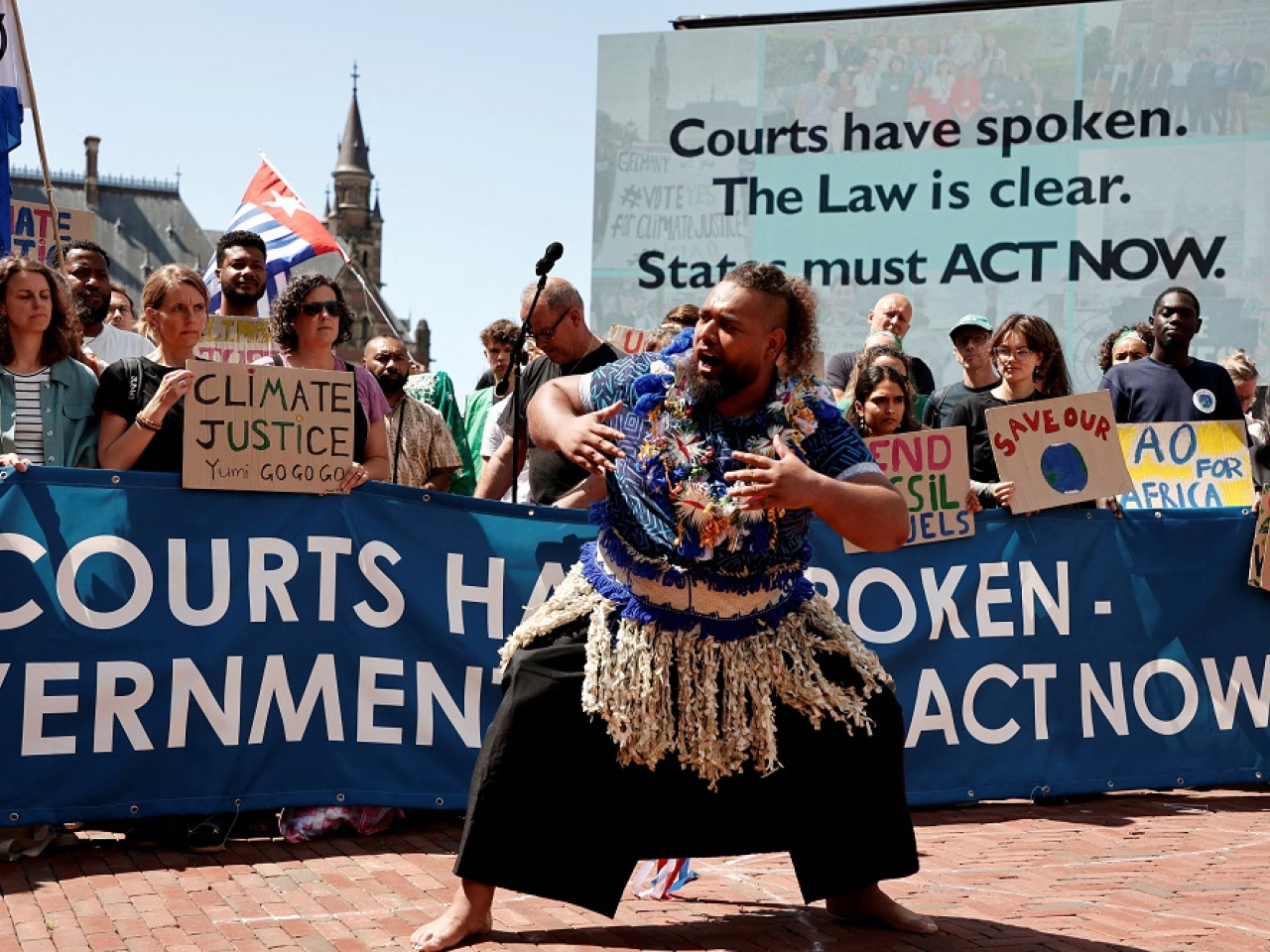The world's highest court on Wednesday said that states are obligated under international law to tackle climate change and warned that failing to do so could open the door to reparations.
In an historic opinion, the International Court of Justice said climate change was an "urgent and existential threat" and states had a legal duty to prevent harm from their planet-warming pollution.
Countries breaching their climate obligations were committing a "wrongful act", the court said in its advisory opinion, which is not legally binding but carries significant moral, political and legal weight.
"The legal consequences resulting from the commission of an internationally wrongful act may include... full reparations to injured states in the form of restitution, compensation and satisfaction," said ICJ President Yuji Iwasawa on behalf of the 15-judge panel.
This would be on a case-by-case basis where a "sufficient direct and certain causal nexus" had been shown "between the wrongful act and the injury," the court added.
Campaigners and countries on the climate frontlines hailed a milestone moment in the fight for accountability from big polluters most responsible for global warming.
Ralph Regenvanu, the climate change minister for Vanuatu, the small Pacific island nation which spearheaded the case at the Hague, was jubilant.
Speaking outside the court, Regenvanu said it was "a very strong opinion at the end" and better than hoped.
"We can use these arguments when we talk with our partners, some of the high-emitting states. We can say you have a legal obligation to help us," he said.
"This helps us in our arguments. It's going to give us a lot more leverage... in all negotiations."
This was the biggest case in ICJ history, and seen as the most consequential in a recent string of landmark climate rulings.
The United Nations had tasked the 15 judges at the ICJ, a UN court in the Hague that adjudicates disputes between nations, to answer two fundamental questions.
First: what must states do under international law to protect the environment from greenhouse gas emissions for the future?
Second: what are the consequences for states whose emissions have caused environmental harm, especially to vulnerable low-lying island states?
In a detailed summary of the opinion, Iwasawa said the climate "must be protected for present and future generations".
The adverse effect of a warming planet "may significantly impair the enjoyment of certain human rights, including the right to life," he added. (AFP)





